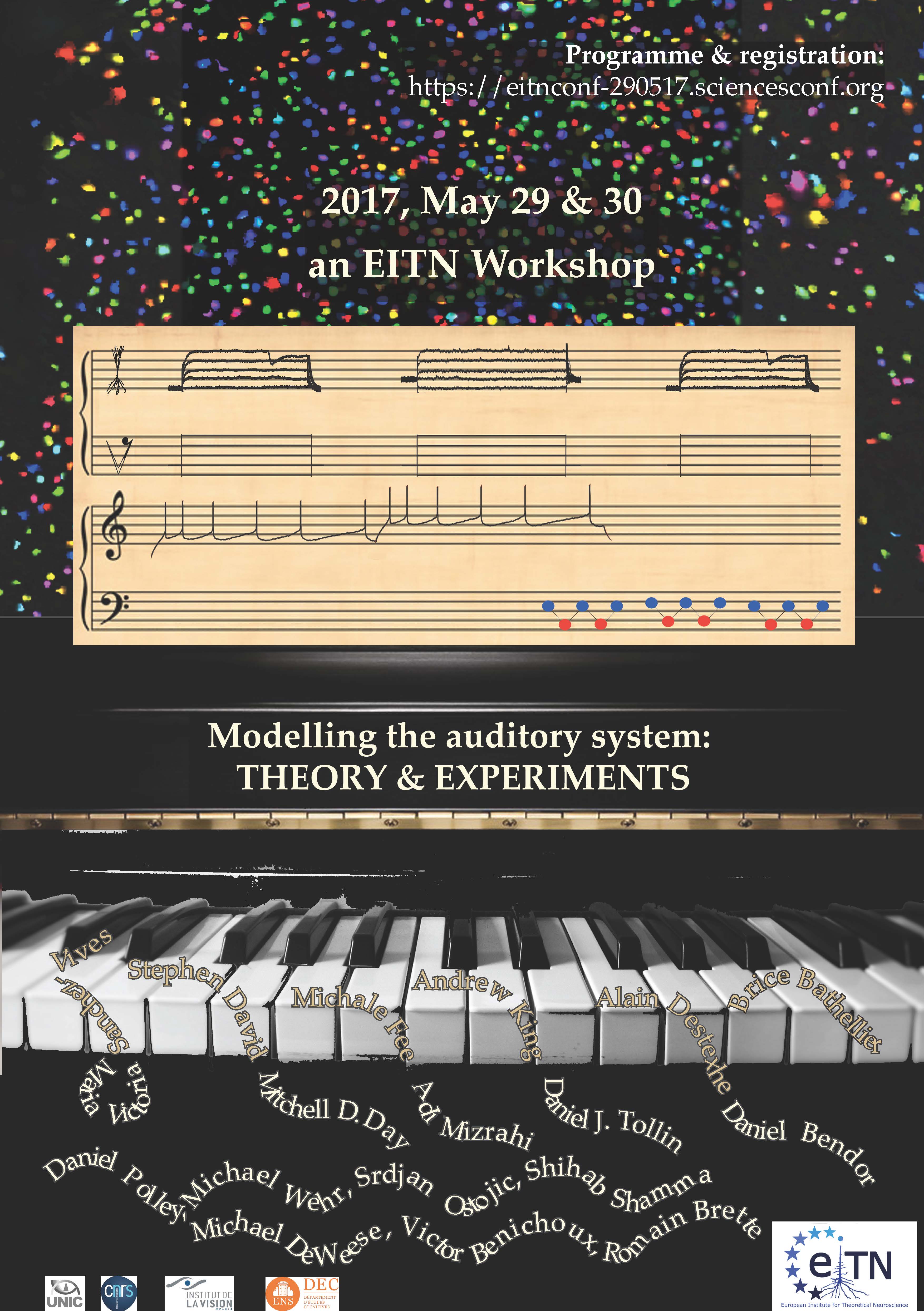Due to a limited number of seats the registration is free however mandatory. Registration is now closed.

Hearing is a fundamental sensory ability for many animals and is involved in various contexts such as communication, identification of distant events, spatial orientation, or even in purely hedonic behaviours such as listening to music. But, despite continuous advance in the neurophysiology of hearing, the principles by which the brain performs auditory perception are still unclear and many complex questions are still waiting for being solved beyond simple examples. What sound features need to be recognized to discriminate biological relevant acoustic sources? How are these features computed and organized across the auditory system? What are the circuit principles that underlie these computations? How are these computations modulated by behavioural context?
To address all this complexity, hand-in-hand work between theory and experiments seem to be an unavoidable path. With this workshop, we aim at bridging together a large panel of scientists working on auditory processing at the theoretical and/or experimental level and discuss recent advances on both fronts as well as the current challenges and open questions that this large interdisciplinary effort is currently facing.
Speakers
Brice Bathellier, UNIC CNRS
Daniel Bendor, UCL
Victor Benichoux, Institut Pasteur
Romain Brette, Institut de la Vision
Mitchell D.Day, Ohio University
Stephen David, Oregon Hearing Institute
Alain Destexhe, EITN UNIC CNRS
Mike Deweese, Berkeley
Michale Fee, MIT
Andrew King, University of Oxford
Adi Mizrahi, Jerusalem University
Srdjan Ostojic, ENS
Daniel Polley, Harvard University
María Victoria Sánchez Vives, ICREA IDIBAPS
Shibab Shamma, ENS
Daniel J. Tollin, University of Colorado
Michael Wehr, Oregon University